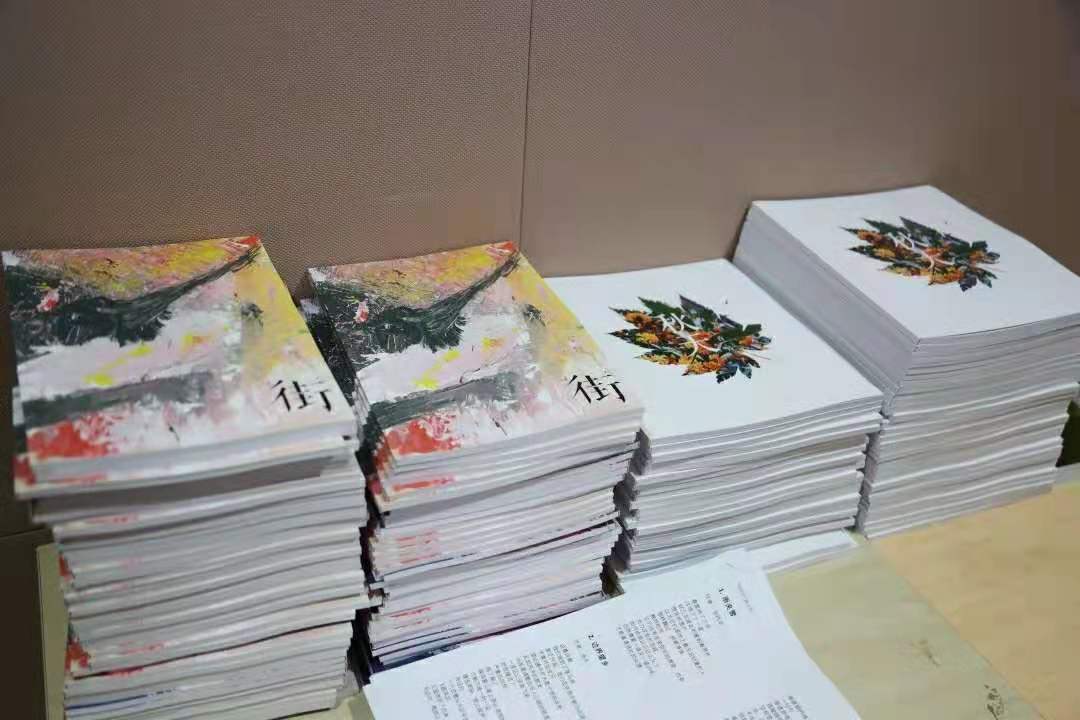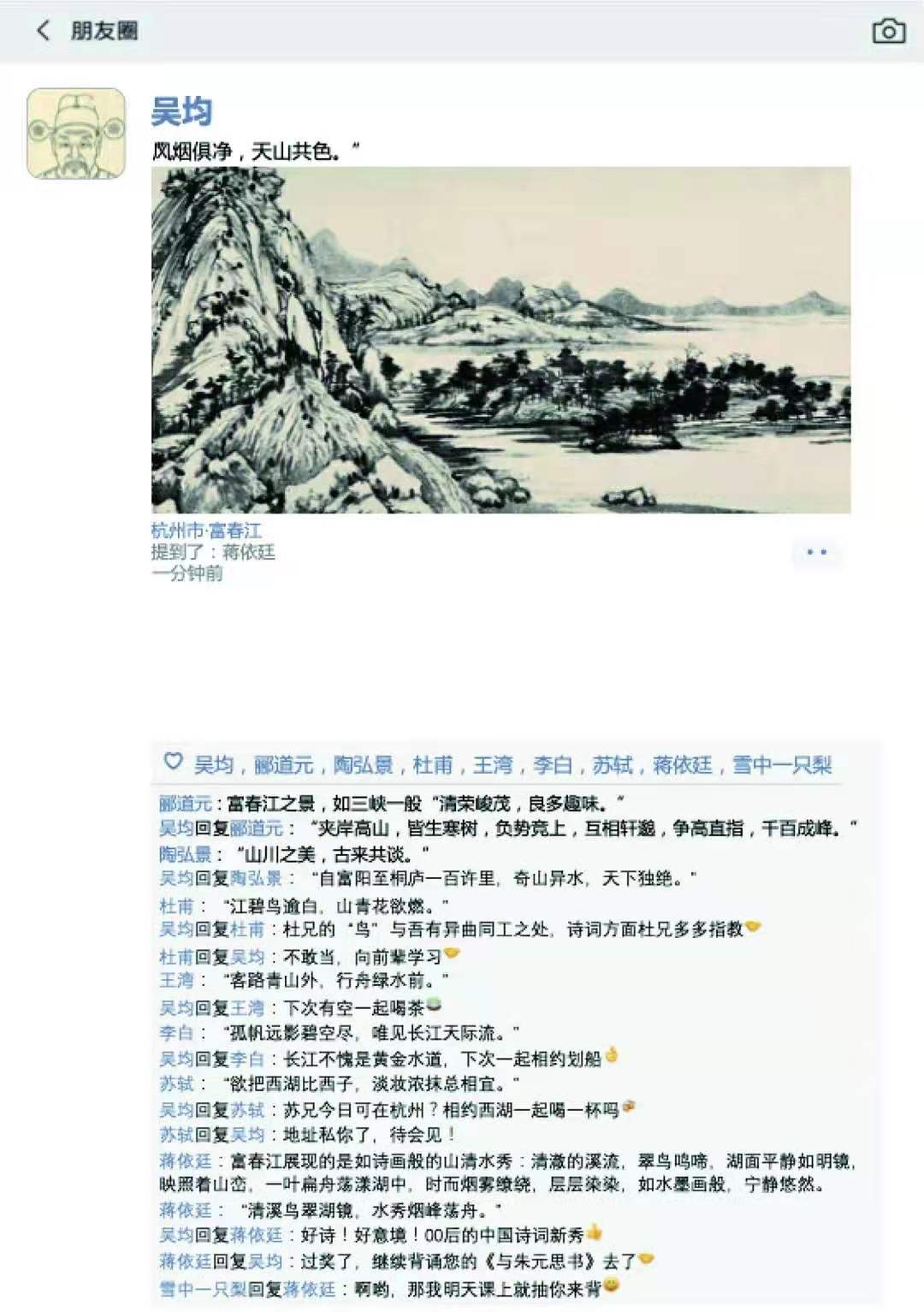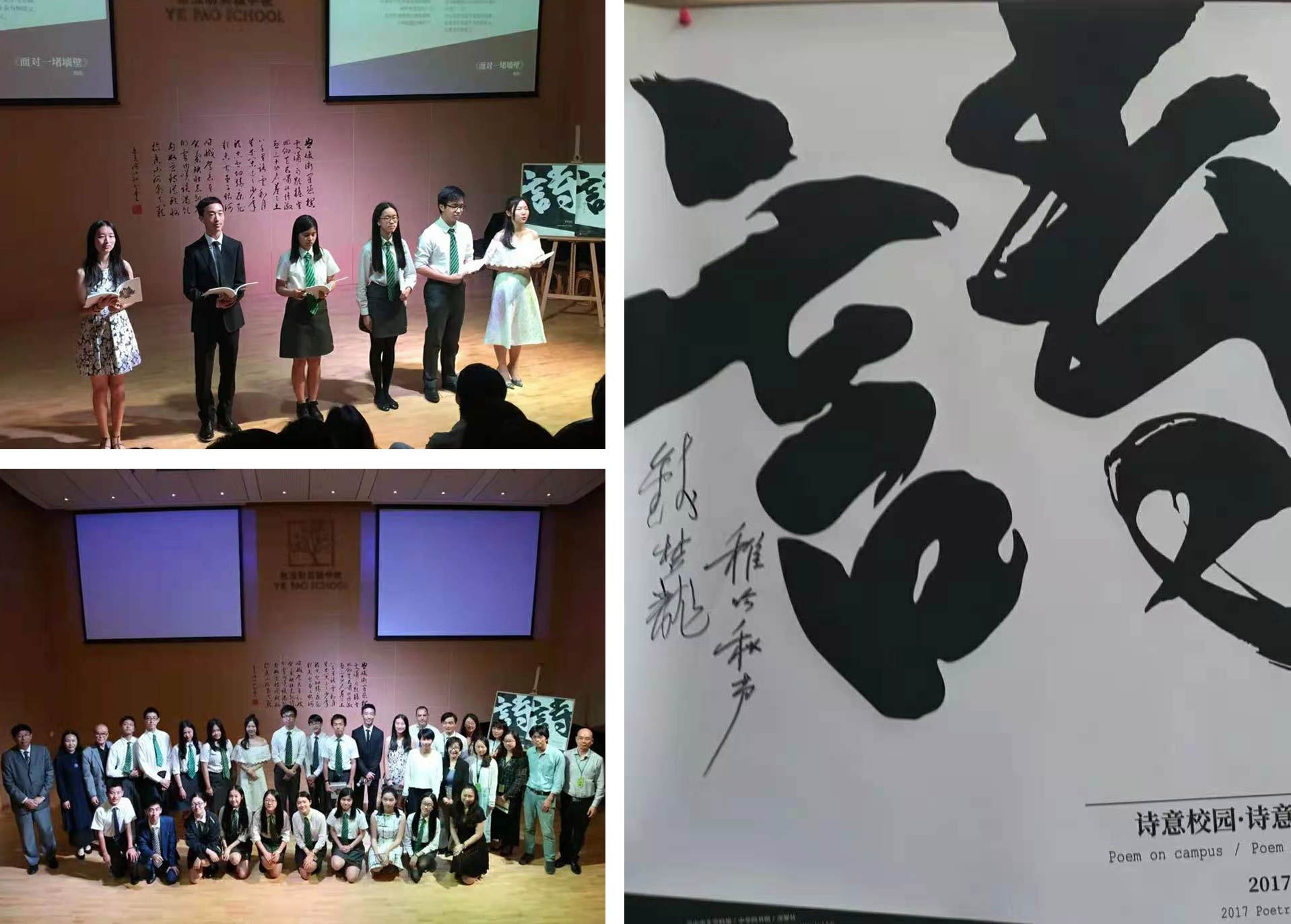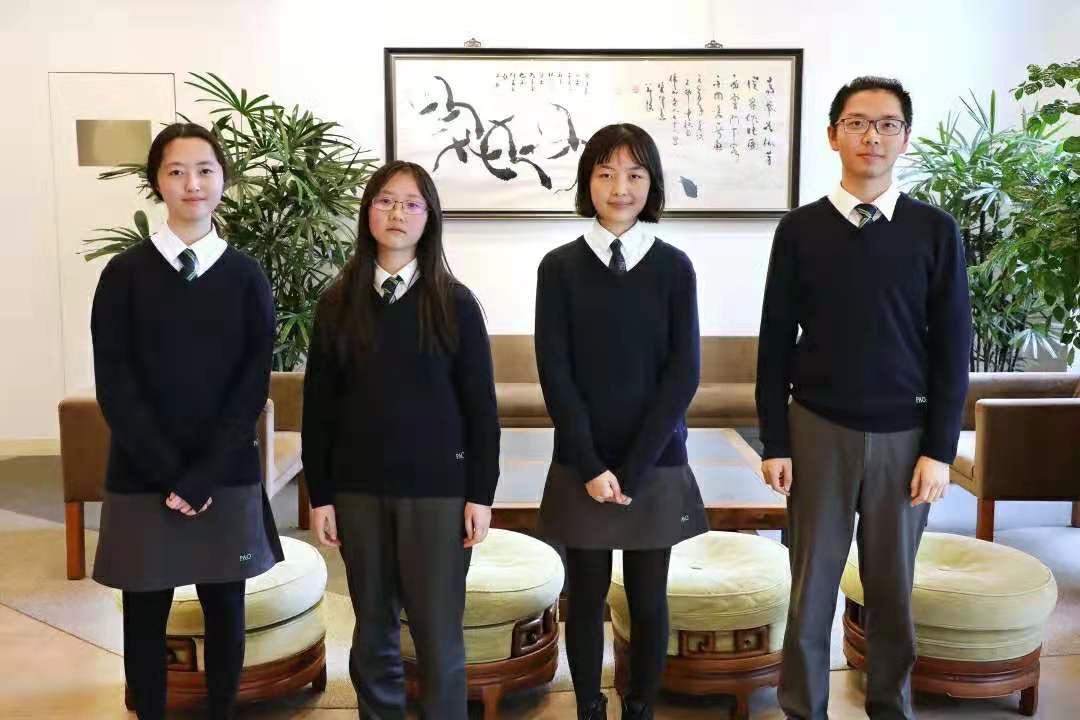Pao School students study poetry throughout their time at the school, allowing them to develop a deep appreciation for the beauty of poetry and learn to express their thoughts in concise, refined language.
Learning poetry at Pao School
Pao School's Primary School curriculum uses teaching materials issued by the Ministry of Education. The curriculum covers a number of different works of classical Chinese poetry, starting with simple nursery rhymes in Year 1 and steadily increasing in length and difficulty up to Year 5. Studying poetry allows students to better understand Chinese culture, notes Mandy Ren, Head of Upper Primary Chinese at the Primary School. Further, in Upper Primary, students are introduced to modern Chinese poetry. One of the Year 4 unit activities focuses on enhancing students' reading ability outside of the classroom. In this exercise, students are divided into groups to choose poems according to their own taste and specific themes and compile them into a collection. By studying multiple works of poetry by others, students learn the fundamentals of the discipline and then they can try to write poems of their own.

One of the challenges in teaching classical Chinese poetry is understanding the background of works that were created centuries ago, in a world far different from the one we know today. Jade Tao, Y5 Chinese Planning Leader, notes that before starting to teach the content, the teacher first discusses the background of each poem with the students, and asks them to research the poems on their own. This encourages the children to develop a better understanding of the historical and cultural background of each poem. In this manner, the students can better understand the feelings expressed in the poetry. Teachers also encourage students to research how Chinese poetry has been influential throughout the course of China's history. This kind of exercise is also a chance for students to boost their independent research and exploration abilities. After the unit study, the students produce some posters and record videos of themselves reciting poetry to share with their parents, allowing parents to see the fruits of their children's hard work.
In the middle school, there are a variety of methods used to teach poetry. For example, the teacher may select poetry based on a common theme or writer for students to read and study. In Year 7, students follow the theme of "Ascend", which gives students an appreciation for the different emotions expressed through poetry as the poets climbed up mountains or tall buildings . They also learn about the background of the poet, to help discover and consider the wider context of the piece, alongside how it may relate to a wider discussion and understanding of the world.

Recently, in Year 8, students were looking at classical Chinese Shan-Shui landscape poetry, building on their previous studies of learned classical Chinese and Tang-Song dynasty landscape poetry. The students used mock up WeChat moments to share poetry reviews and interpretations, allowing them to also practice their writing skills.
Shirley Jin, the Head of Middle School Chinese, explains that the study of poetry emphasizes practical analysis to develop the student’s ability to analyse and finding meaning in literature. The classes place language skills at the foundation and analytical thinking at the core of learning, providing an environment that stimulates the study of important core subject matter whilst encouraging self-study. This individual study allows students to develop their language usage and methods of expression in an authentic learning environment.
Introduced by Le Yingyu, Head of High School Chinese, poetry has always been an important part of the Chinese curriculum at YK Pao High School. In Years 9-12 students learn both classical and modern Chinese poetry. They discuss and analyze the works of poets whilst also developing their own poetry skills. During the learning process, teachers encourage students to integrate theory with practice, and move from imitation to creation. In recent years, the poetry works of Pao School students have covered a number of poetic styles, including ancient poetry (Gushi), regulated verse (Jintishi) and modern Chinese poetry.
Over the past few years, the High School Chinese Department has published a number of student poem collections, such as "A Poem for Spring," "A Poem for Autumn" and other seasonal themed collections. In addition, the Illuminate Poetry Club has published the poetry collection "Illuminate." The High School has also held a variety of colourful poetry events, such as "Menglong Shihua" and "Exploration: Poetry's Secret Code," which have been widely acclaimed by both teachers and students. These successes have been a source of tremendous encouragement for everyone involved in poetry education at Pao School.

Menglong Shihua
However, learning a language requires more than just studying texts – eventually, learners must also turn their hand to creation using the language. Here are some examples of original poetic works of four members of the Illuminate Poetry Club. The poems explore a number of themes, including the expression of aspirations and emotions, and most were written all at once.
Pao School has shown me a strange and wonderful literary world.
——Y12 Danny
Year 12 student Titi has been writing poems since primary school. The main reason she likes poems is that she feels they give authors more freedom than other literary genres. When writing poems, she can choose different forms, rhythms and techniques to express her ideas. After coming to Pao School, she began to create bilingual literary works, and she gained a lot from the creative process. Titi said that in the activities of the poetry club, the teacher gives students a lot of space to explore and discuss poetry, helping everyone improve their literacy and poetry writing ability.
Titi’s work is entitled "The Performer." In this poem, she depicts Shanghai’s autumn scenery. She uses anthropomorphic techniques to vividly show the changes of the seasons around her. At the same time, she uses metaphors to compare fallen leaves to butterflies, the setting sun to the process of making wine and represents Shanghai through the smoke and steam created by people cooking in their home. In this poem, she hopes to infuse the seemingly pedestrian aspects of her life with poetic flair.
#The Performer
Titi Y12
一个夏日的的午后
踏着热浪与蝉鸣
你悄悄地来了
在麦田中你摆起琴架
指尖轻动 清风起
如同褪色的蝴蝶般
落叶从梧桐的裙摆上 飞入人间烟火
将你的眉间也染上几点金黄
悠长的鸟鸣 携着小小的音符
穿过小径 电线杆与平房
悄悄地为枝头的果实画上新妆
熟透的葡萄 将漫天云絮
酿成玛瑙色的晚霞
旋律缓缓落下 你端起沉甸甸的酒碗
醉倒在炊烟之中
*Music composed by Y10 students Angela and Valerie
Danny from Year 12 says that before coming to Pao School he had no interest in literature, but that teachers at the school taught him how to read the same work many times. Danny learned how to study a literary work , and at the same time, he developed a deeper understanding of his own identity and how literary themes are relevant to real life. As a big reader, Danny feels the 20th century was a golden age for literature, giving birth to a large number of new literary ideas, styles and methods.
Danny has a background that is both Chinese and Western, giving him a hybrid identity that he tries to integrate into his poems. Danny loves the inclusive and subjective nature of literature. He believes modern poetry gives authors great freedom, such as the ability to redefine a phase. The work submitted by Danny is called "Watching the Sea." Danny was inspired to write this poem because of an experience he had during survival training on Hong Kong's Dayu Island. Danny was on the island camping, and became inspired by the flames of the bonfire and the vastness of the sea before him.
Finally, he says, "Pao School has shown me a strange and wonderful literary world."
# Watching the Sea
Danny Y12
当我看见宽广的海在我面前展开
背对砂石,背对平地而起的篝火时
我总会想起海滩边一个轻快的
花冠女神般的少女,和她载着信鸽的白鞋子
她的睫毛上有着初霜的闪光
我沉重的脑袋就会失去平衡,偏向一边
因糖分过多而发出咯噔,咯噔的响声
浪来的时候
海水冲刷她的脚踝
她就像被触碰到了麻筋,嬉笑着跳到一边
一双白鞋子颤颤巍巍
她就这样沿着海滩走着
再走十个小时,太阳就沉下去了
她就会裹上天蓝色的花边睡袍
在淙淙水声的文火中慢慢变老
*Music composed by Y12 Matt
Stephanie, Year 11, shared her work "Youth." Of her many poetic works, this one best expresses her emotions. Stephanie likes to create in different forms: prose, painting and photography. As a five-day boarding student, she takes the school bus to school and then back home once every week. While riding the bus, Stephanie enjoys watching the dawn break. She has found that the first light of day is particularly good for stimulating creative inspiration and emotion. Before coming to Pao School, most of Stephanie's works were based on imitating ancient poems. After coming to Pao School, she gradually began to try many new ways to cultivate her poetry writing skills. She participated in debates, joined poetry clubs and got involved in other types of organizations.
# Youth
Stephanie Y11
她意识到她是那么向往而又恐惧青春
那种美好而热烈的
那种眷恋而疯狂的
她甚至怀疑她曾经度过的所有时光
与青春相比
它们虚假而苍白
她好像已经是一个老人了
不,不是已经
是一直以来
她都没有年轻过
她的生活只分为幼年和老年
其中断裂的部分好似深渊
回荡着空谷的风
她的青春在未开始的时候就已然结束
仿佛那被诞下的死胎一般
她也许是注定无法拥有它的
因为内心深处生长着的不知名的恐惧
让她心甘情愿地收回了试图触摸的手
却又往那仍未干涸的心里撒满了渴望的种子
他们说
青春是危险的
是的,它像火一样明亮温暖
但若你学蛾子
那便是自焚的结局
她不明白
为什么那些美好
会透支人生呢?
那会是一个谎言吗?
他们精心编织出来的
夺走她青春的谎言吗?
她并不知道
可是她依旧宁愿待在那言语构筑起来的牢笼
继续着,也许永远地继续着
那向往和恐惧
*Music composed by Y12 Matt
Alisa, Year 11, feels that Pao School overall has a relatively strong literary atmosphere. Thus, students who love writing have many opportunities to interact and exchange ideas. Alisa's was first inspired to write by a friend, who wanted to publish a collection of poems. Although Alisa never received any compensation for her work, she still contributed some poetry and gained a love of writing.
The poem "Untitled" is an experiment for Alisa. It is a record of how she creates poetry, including the action of submitting the poem to the Illuminate Poetry Club. Alisa doesn't think that there are specific rules to define what constitutes a poem. Thus, when she writes poetry, whilst she is mindful of words and rhythm, she is more reliant on intuition. However, after a while, she sometimes experiences creators block. To move forward, Lisa says that is necessary to find creative ways to learn from other poets and that doing so will help bring about a breakthrough in the artistic process.
# Untitled
Alisa Y11
很想写诗
不是不得不写诗
但很想写诗
于是在罗森的一张不甚干净的桌子上
两肘撑着
面前摊着一本
韩东的诗集
在叮叮叮铛铛铛
与笑谈的交织中
写下这几个文字
现在我的双臂缩到了身体两侧
现在挪到了身前
还是缩着
浑身都很难受
特别是胸口
闷
不自在
我修改了几处文字
人已经不说话了
罗森还在叮叮叮
铛铛铛
我想了想
前面的人绷着脸在工作
罗森还在
叮叮叮
铛铛铛
现在我为了给一册诗歌期刊投稿
修改了一处分行
*Music composed by Y10 students Angela and Valerie

From left to right: Stephanie, Alisa, Titi, Danny
The Illuminate Poetry Club
The Illuminate Poetry Club, founded in 2017, aims to provide a space for students to learn, discuss and create poetry. The club's discussions cover poetry analysis, the history of modern poetry and poetry theory. As a condition of membership, club members must submit two original works, such as poetry, a translation of poetry or a poetry analysis, on a monthly basis. At the end of each academic year, the club collect students' poetic works and publish them in a magazine.
*Thanks to David Xiong, the Director of Chinese Academics on Songjiang Campus, for contributing some of the content and photos.